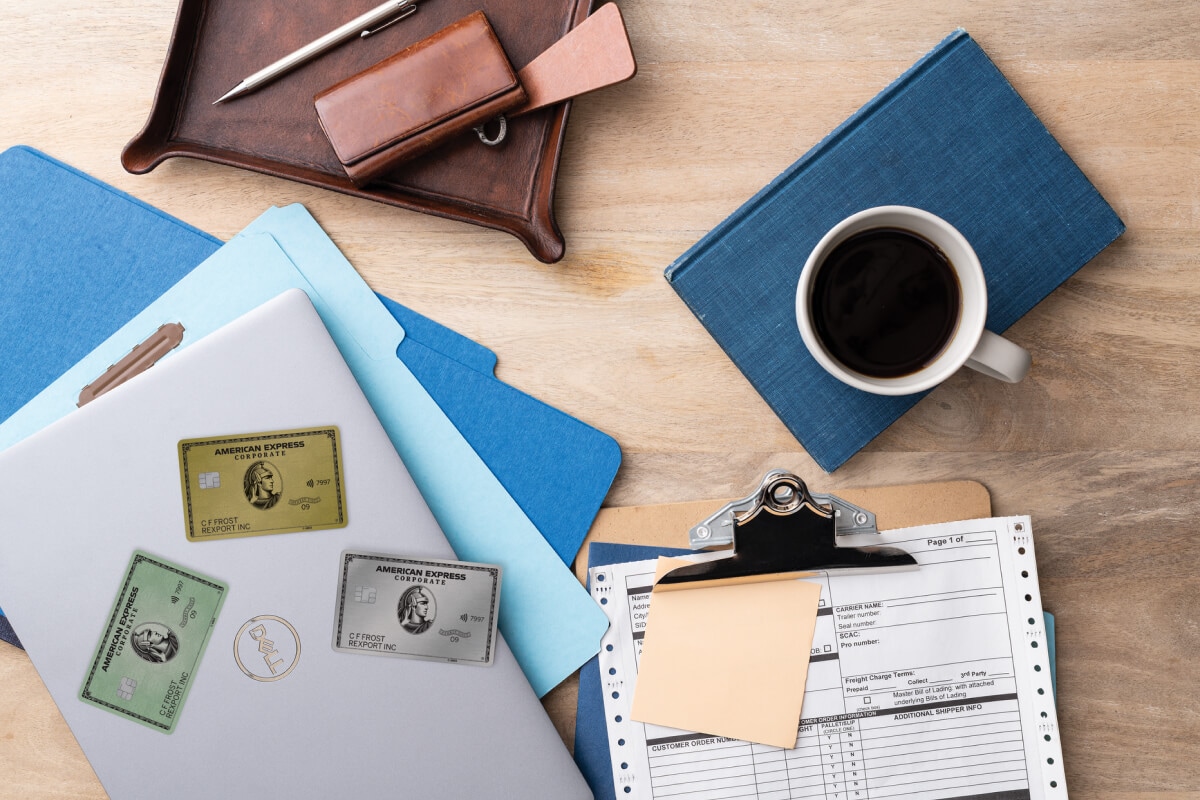How to Pay a Credit Card Bill
6 Min Read | Last updated: January 7, 2025

This article contains general information and is not intended to provide information that is specific to American Express products and services. Similar products and services offered by different companies will have different features and you should always read about product details before acquiring any financial product.
It’s important to pay your credit card bill on time each month. Learn more about how to pay your credit card bill and tips to avoid fees and interest.
At-A-Glance
- Paying your credit card balance in full and on time each month can help to prevent late fees and keep your account in good standing.
- There are a number of different ways that you may be able to pay your credit card bill, including online, via autopay, or even by mail.
- Setting up autopay and opting into reminders can help you to ensure that you pay your credit card bill on time.
Knowing how and when to pay your credit card bill is important for preventing late fees and keeping your account in good standing.
How to Pay Your Credit Card Bill
There are a number of different ways that you can pay your credit card bill, although your options may vary, depending on your credit card issuer. You can pay your bill online or via mail, or in some cases, through your credit card issuer’s app. You may also want to check to see if your credit card provider allows you to pay by cash or check or automatic clearing house (ACH) payments as well.
Credit Card Payoff Calculator
See how many months you have until your payoff is completed and how much interest you may owe.
Enter in your credit card balance, annual percentage rate, and monthly payment you plan to make.
When Should You Pay Your Credit Card Bill?
Credit cards have billing cycles, which could last around a month. Once the billing cycle ends your credit card provider may issue you a credit card statement, where you may be able to see the minimum payment due along with your statement balance. Credit card issuers must provide you with at least 21 days between when your statement is issued and your due date.1
It can be important to pay your credit card bills on time each month. Making at least the minimum payment due on time can help to prevent late fees and help to keep your account in good standing. However, if you can, paying off your full balance by the due date can help to prevent interest charges (in most cases) from accruing. Carrying a low balance could benefit your credit score as well.
Should You Carry a Balance on Your Credit Card?
Many people think that you need to carry a balance on your credit card from month to month to build your credit score. But this may not be true. Paying your card’s full statement balance each month can have a positive impact on your credit score. Paying your balance lowers your credit utilization rate. A low credit utilization rate shows lenders that you can repay what you owe.2
Is it Good to Pay Your Credit Card Bill Early?
There could be benefits to paying your credit card early. For example, some individuals pay off a portion or their entire balance early, before the monthly due date, to help lower their credit utilization rate. Some people pay their credit card bill twice a month, in the middle and at the end of their monthly cycles, to keep the utilization rate as low as possible. If you plan on paying your monthly balance in full each month, one of these approaches could be a good way to go.
Tips for Making On-Time Payments
It can be good practice when paying your credit card bill each month to pay your full outstanding balance on or before the due date. Busy jobs, families, social lives, and all kinds of day-to-day distractions can make it easy to lose track of due dates or forget to pay a credit card bill. This can especially be true if you have multiple credit cards. Here are three tips for on-time payments:
- Set Up Text or Email Alerts
It can be helpful to set up text or email alerts to remind you when a credit card payment is due. Some credit card companies have mobile apps you can use to set notifications that give you a weekly snapshot of spending, payment reminders, statement-ready reminders, bill-due reminders, and more. - Request the Same Payment Date for All Cards
If you have more than one credit card, one uniform payment date could make your life easier. Then, you may only have to keep track of a single monthly payment date. You can usually arrange this by either calling your card issuer or making the request online. Of course, there’s no guarantee you will receive the exact date you request. - Use AutoPay for Your Credit Card Bills
Setting up automatic payments can help take the worry out of missing a payment. But you might want to make sure you have enough funds in the bank to cover your payments.
The following section discusses how to use autopay for credit card payments.
Using AutoPay to Pay Your Credit Card Bill
Most major credit card companies offer automatic payment options which allow your credit card company to debit your bank account on a set date and for a set amount each month. This can help to minimize your risk of late payments or late fees. There are three ways to use autopay to pay your credit card bill:
- Pay the Minimum Due
This is a basic safety measure that may ensure you never miss a payment due date. It can be especially useful if you want to review your bills manually each month before paying them, but don’t want to overlook a deadline. - Pay the Full Balance On Your Card
If you maintain a large enough balance in your bank account to cover your monthly credit card balance, this approach could help you save money on interest charges and avoid late fees. - Pay a Fixed Amount
This can be a useful strategy if you’ve stopped using a credit card and want to pay down the balance by making regular payments that are greater than the minimum amount due each month. It could also be a useful strategy if you spend the same amount on your credit card every month.
Even when using AutoPay, it can still be important to set alerts for when your credit card payments are due, and to check to make sure the AutoPay has gone through without any issues.
How to Pay Your American Express Credit Card
You have different options when it comes to paying your American Express Credit Card bill. These include:
- Enrolling in AutoPay
You can enroll in AutoPay to pay your American Express Credit Card bill on time each month. If you’re not enrolled in AutoPay, you can do so via your Amex® App or online. - Paying Online
You can also pay your Amex bill online. To do this, log into your online account using your username and password. - Paying Via Mail
You may also pay your Amex bill via mail. To send bill payment, you can use the following address:
American Express
P.O. Box 96001
Los Angeles, CA 90096 – 8000
For overnight bill payment, you can use the following address:
American Express
Attn: Express Mail Remittance Processing
20500 Belshaw Ave
Carson, CA 90746
Finally, if you’d like to adjust your due date, you can do this through your online account or the Amex App. You can make a payment at any time before your payment due date.
The Takeaway
Paying your credit card bill on time and in full each month can help you avoid interest charges and late fees. Most credit card issuers offer multiple ways to pay. Taking advantage of an AutoPay service can be an easy way to help make your payments on time.
1 “How your grace period lets you avoid paying interest on a credit card," Bankrate
2 “What Is a Credit Utilization Ratio?," Equifax
SHARE
Related Articles
Can You Buy Gift Cards With a Credit Card?
Learn how to safely buy gift cards with a credit card. Maximize your rewards with our essential tips for secure shopping at applicable retailers.
How to Get a Credit Card for the First Time
Start your financial journey! Learn how to get a credit card for the first time with our guide featuring great credit cards for beginners and helpful tips.
Your Guide to the Different Types of Credit Cards
New to credit cards? Compare the different types of credit cards to find the best fit, from secured and unsecured to travel and reward cards.
The material made available for you on this website, Credit Intel, is for informational purposes only and intended for U.S. residents and is not intended to provide legal, tax or financial advice. If you have questions, please consult your own professional legal, tax and financial advisors.












